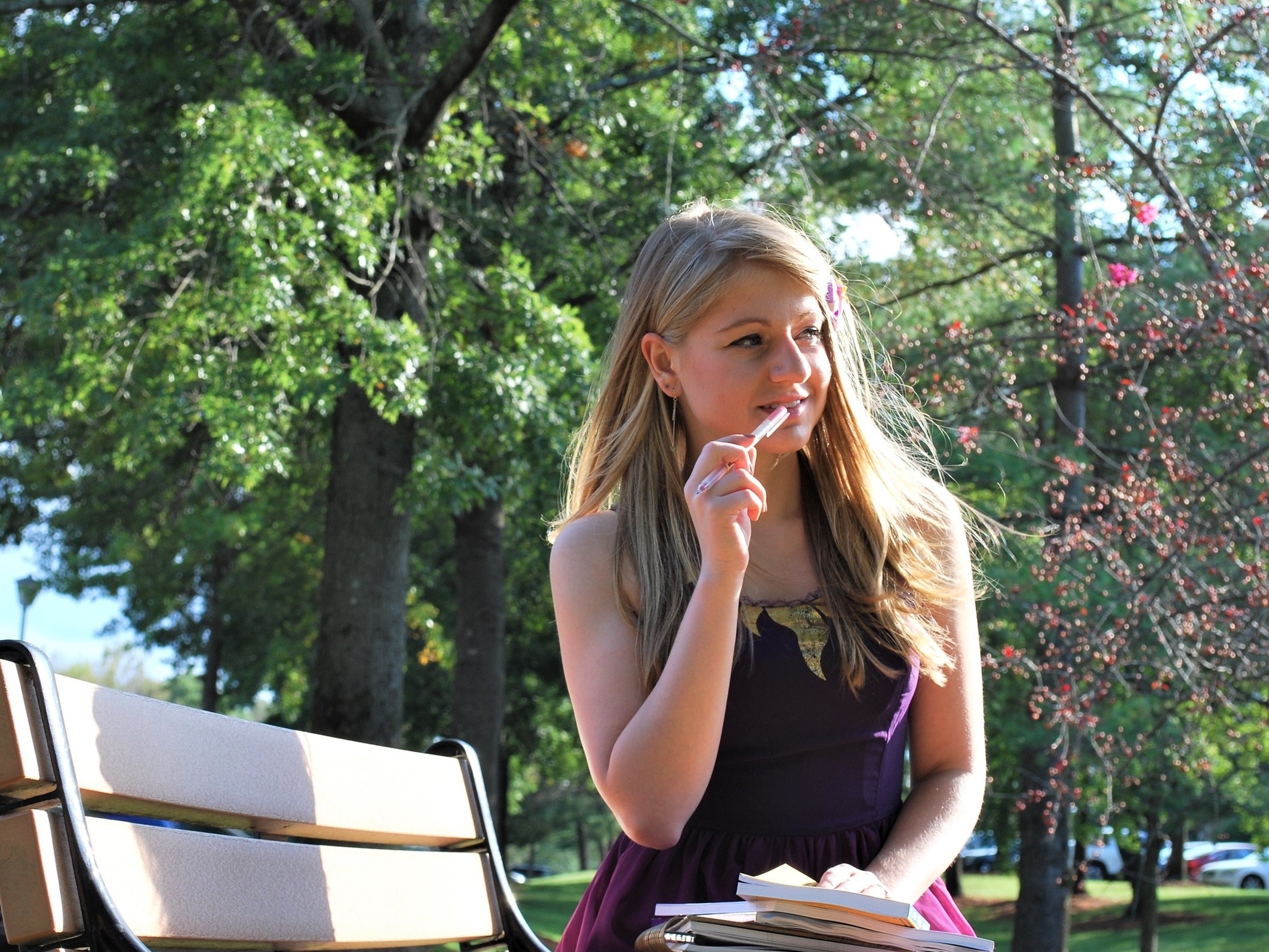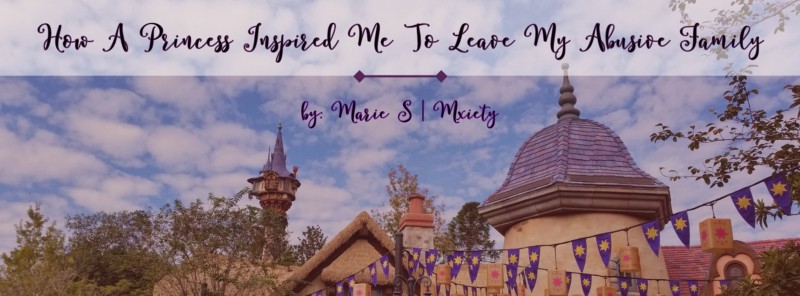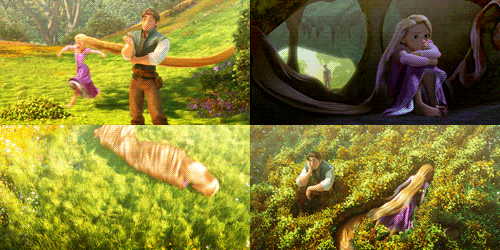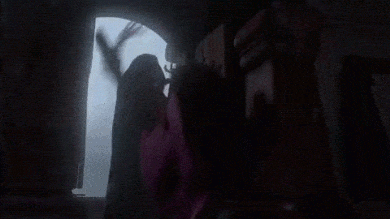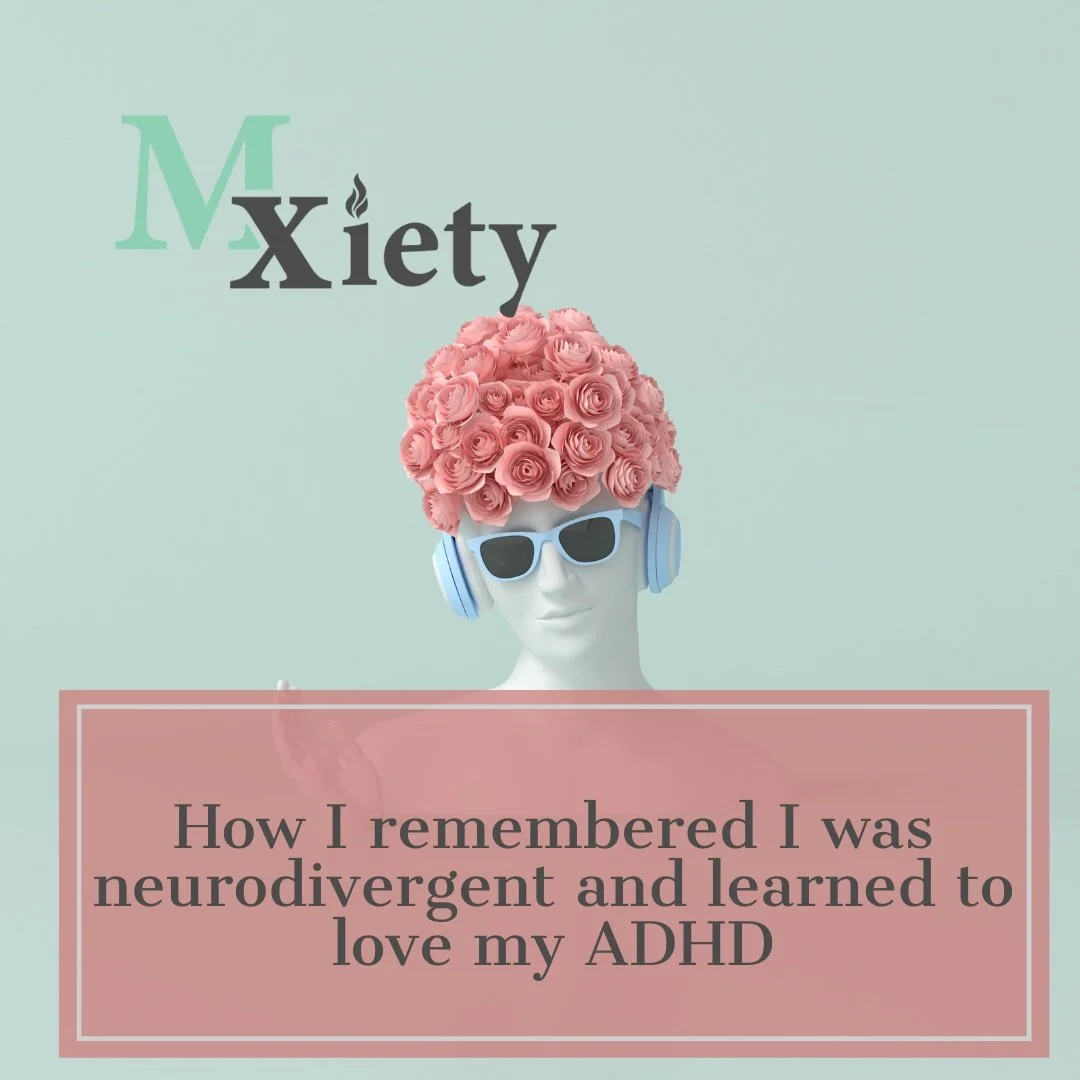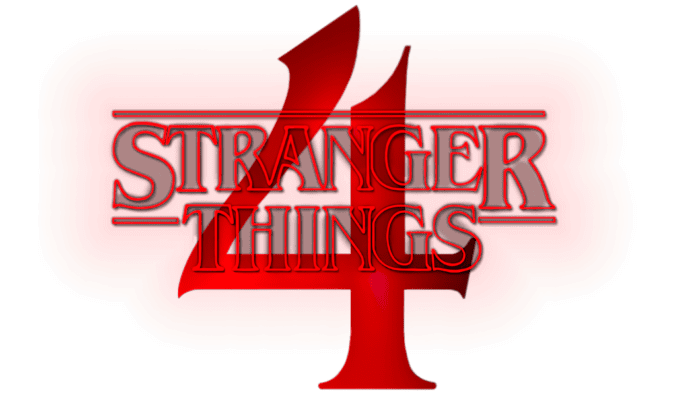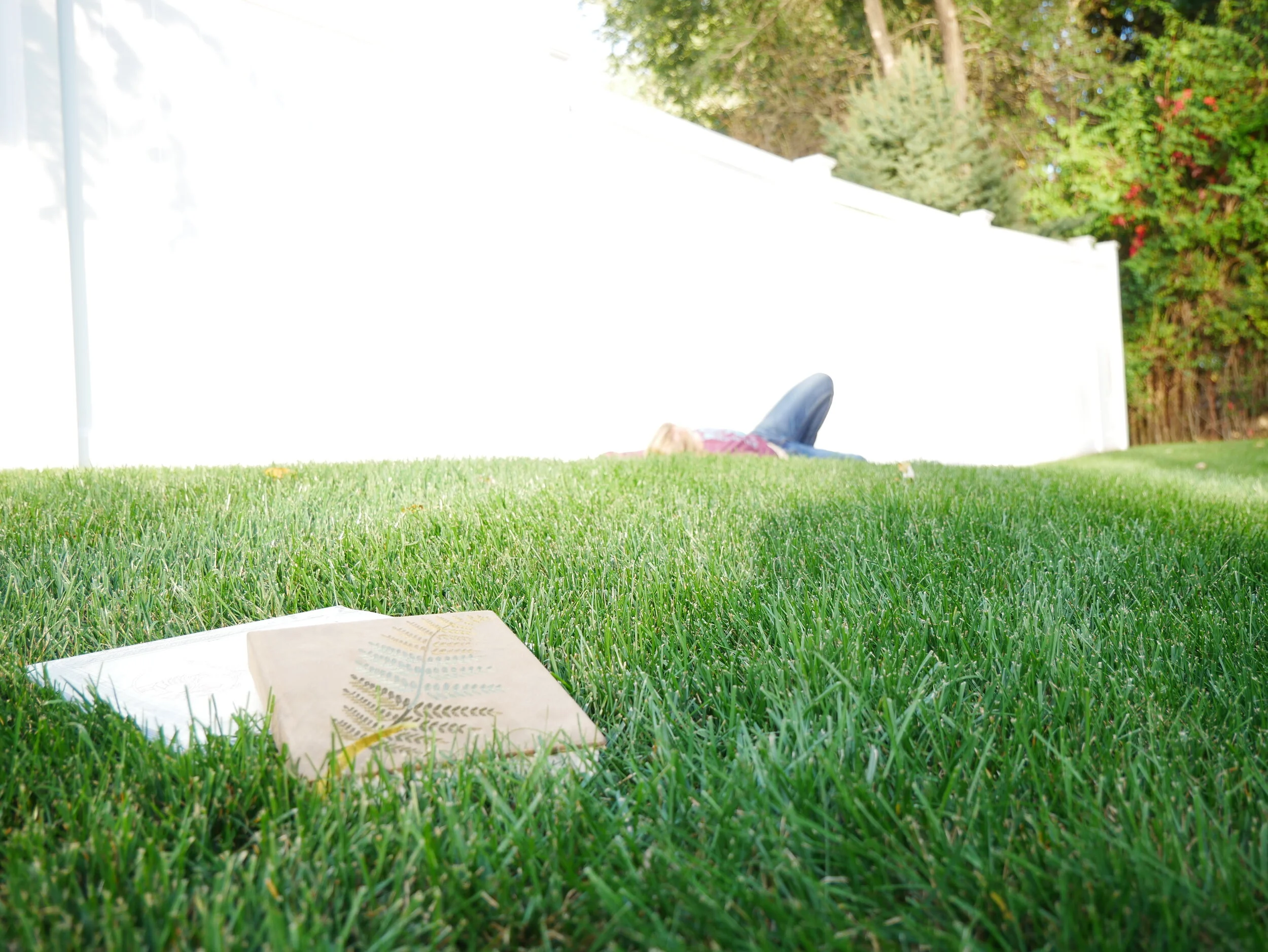A Disney Princess Inspired Me To Leave My Abusive Family
/
When we were little, many of us picked a Disney Princess to identify with. In the past few years, Mickey has been doing a great job diversifying his lineup, ensuring that more kids find their inner strength through incredible female role models. Growing up I could see myself as Cinderella, cleaning and waiting for a prince to come and take me away from a family where I never felt quite wanted. But I grew out of Cinderella and wanting to be passively saved. And on November 24, 2010, I found my princess in the animated movie Tangled, and, with her, the strength I needed to stand up for myself.
Rapunzel was the role model I didn’t know I needed, while, the feature’s villain, Mother Gothel, was a perfect foil and a powerful catalyst.
When you live in a home with parents who are mentally but not physically abusive, it’s hard to express to others what the problem might be. In my case, relatives and close family friends could even justify my parent’s actions by saying that I was “just a teenager” or “just impatient”. Other times, those who wanted to help truly weren’t sure what they could do.
Mother Gothel gave a name to my misery.
Gothel kidnaps Rapunzel from her family and raises her hidden in a remote tower, using the girl’s magical healing powers to keep herself forever young. Although she uses loving words and has successfully convinced Rapunzel she is her birth mother, there is no doubt that this woman only cares for Rapunzel as a vessel for her power, as she frequently holds Rapunzel’s healing hair, kisses her on top of her head, and yet, otherwise avoids any other physical contact. Through fear tactics, Gothel is able to keep the stolen princess from wanting to venture outside of the tower she was raised in.
However, after being locked up for eighteen years, on her birthday, Rapunzel gathers all of her courage to ask Gothel to escort her to see the “floating lights” she had been following since she was little. In comes a mercurial musical number, Mother Knows Best, where Gothel works to solidify herself as the victim.
Gothel, immediately goes on the defense and uses guilt to make her ward stay. The concern is almost believable if you forget that locking Rapunzel in this the tower has deprived the missing princess of an education, socialization and the love of her birth family.
The lyrics are simultaneously loving, yet peppered with insults to Rapunzel’s body and allude to her lack of self-sufficiency, which as the parent figure, Gothel was responsible for in the first place.
“Sloppy, underdressed, immature, clumsy
Please, they’ll eat you up alive
Gullible, naive, positively grubby
Ditzy and a bit, well, hmm, vague
Plus, I believe gettin’ kinda chubby
I’m just saying ’cause I love you…”
I remember at that moment thinking: “That’s so unkind.” Followed by an epiphany as I considered how I wasn’t allowed to go to a college four hours away because I “wouldn’t make it there.” Or how after looking at me for a minute I was once asked: “I don’t know how you’ll get anyone to love you if you keep gaining weight and have acne.”
Gothel finishes the number by losing her temper and scolding Rapunzel for ever asking to leave — guilting her into believing that the mere idea was not an acceptable one to have. All culminating with an affirmation of love for her “daughter.”
“This is the story of how I died. But don’t worry, this is actually a very fun story…” Flynn Rider, “Tangled”
A while later, Rapunzel tries to show her mother an example of how she can subdue the aforementioned scary thugs with a knocked out intruder (Flynn Rider) in their closet. Suddenly it becomes undeniable that Gothel only cares to keep the girl for herself. She concludes “You are not ever leaving this tower!” proving that her previous implication of Rapunzel’s lacking self-sufficiency had nothing to do with her decision.
This message of care mixed with hurtful comments and contradictory promises is what creates the cognitive dissonance that actually pushes Rapunzel away. It’s also what torments her when she does finally find the courage to leave. Leaving the tower is not the end, however. Years of mental abuse cannot be undone in a day, even in the Disney-verse, especially if your abuser still has contact with you.
Towards the climax of the movie, Gothel’s reaffirms her earlier warnings by reprising her musical number, but this time with the intention to pinpoint and manipulates Rapunzel’s “fragile” emotions.
“Likes you?
Please, Rapunzel, that’s demented
This is why you never should have left
Dear, this whole romance that you’ve invented
Just proves you’re too naive to be here
Why would he like you? Come on now, really?
Look at you, you think that he’s impressed?
Don’t be a dummy
Come with mummy…”
Similarly, to the first number, Gothel switches between lowering Rapunzel’s self-esteem, calling her a “dummy,” and telling her there is no way Flynn Rider could possibly love someone like her. Gothel’s tone turns worse once she hears Rapunzel say something she’s never heard before:
“No.”
I felt the impact of that “No” in my core.
A few months prior, I recall sitting in my car in a grocery store parking lot, waiting to see my now-husband for a date. I called home to let the family know I might be coming back late. In response, my step-mother berated me for not doing a thorough enough job cleaning the bathroom by my room and therefore not earning my leave. She demanded I come home to finish at once. It was a Friday night. I realized that if I had done a poor job I could easily do it again the next day.
So I said: “No.”
Looking back to that moment, it felt like my stepmother’s response almost echoed Gothel’s. She advised that I was betraying our family. She threatened abandonment as a way to remind me who held the control over my future, even though I was almost twenty-one and had been paying for my own college education along with just about every other expense.
Rapunzel proved herself independent because she was able to take on her adventure alone, but that independence was still new. Same went for me going away to college despite warnings I “wouldn’t make it.”
My stepmom hung up on me, telling me I didn’t need to come home, ever. Gothel’s expression caves as she sings in response. It is clear she is afraid, knowing she is about to lose eighteen years of control. All with that one simple “no.”
“Trust me, my dear
That’s how fast he’ll leave you
I won’t say I told you so
Rapunzel knows best!
So if he’s such a dreamboat
Go and put him to the test
If he’s lying
Don’t come crying
Mother knows best…”
Rapunzel is practically forced to go through with trusting Flynn to accompany her, and yet the seed of doubt was planted in her mind through this song.
Once again, this felt all too familiar. All three of my parents found ways to undermine the relationship I was in once it was clear this person had the potential to make me happy. Even if I had assumed they were truly looking out for me, placing bets on how long it would last and declaring that I wasn’t really happy, made me scared and doubtful at times. Indeed, I went through a two-or-so year period where I had to constantly ask others whether scenarios around me were acceptable or people were lying. I was lucky I found someone very patient and truly caring through his actions, which slowly helped undo the damage.
Yet, I desperately wanted their approval and love. And even after that “no,” and being inspired by Rapunzel, I periodically took actions, hoping to gain those things. It’s the same reason that when Mother Gothel dies, despite what she put Rapunzel through, you can still see a glint of hope in Rapunzel’s eyes, a look you may have seen on someone who, while leaving an abusive relationship, still feels love for the abuser. Still hopes love will come from them.
Source: CJ Strusiewicz. “5 Brilliant Moments You Probably Missed in Famous Movies”. Cracked. 2015.
Back in the theater, during my first viewing (of 200 since), the parallels sunk in. By the time the credits rolled, I was resolved to change my circumstance, as Rapunzel had.
Rapunzel chooses to leave her tower, to follow a stranger to a world she’s never known without truly knowing even why. It’s clear she is not motivated to leave because she hopes to marry the thief who entered her home, or that she suspects anything wrong about her mother.
She steps out because there was a force inside of her telling her there was something out there bigger than the circumstance she was in.
I feel that this is the best lesson a Disney princess could teach little girls. Sometimes you have to take the leap even though you are not sure if it will work out. You have to believe that you know what’s best for you and trust your gut. It also doesn’t hurt to reject those labels the world puts on us, be it a thief, thug, or vague dummy.
Oct 30, 2014. Author and her now-husband during Mickey’s Not So Scary Halloween Party @ Walt Disney World Magic Kingdom
Do you have a favorite Disney princess? How about a favorite live-action movie hero who inspired you? John McClane? Princess Jasmine?

